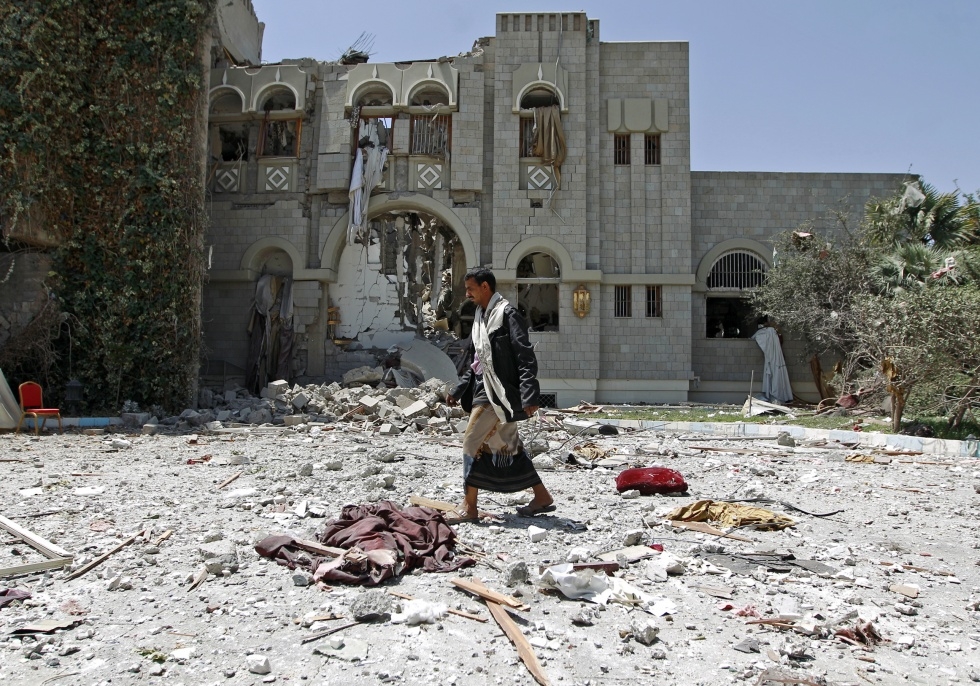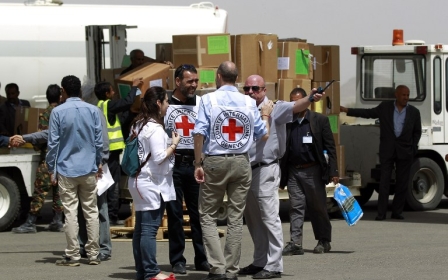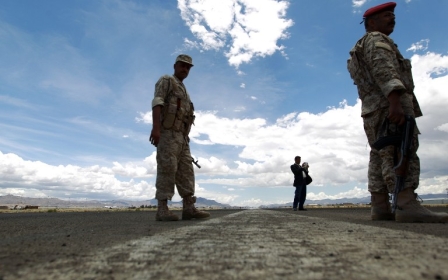Moroccan F-16 jet goes missing ahead of Yemen ceasefire

A Moroccan F-16 warplane taking part in the Saudi Arabian-led coalition fighting in Yemen went missing on Sunday, the Moroccan Royal Armed Forces said in a statement.
Backed by the United States, a Saudi-led coalition has been conducting airstrikes against the Houthis and army units loyal to ex-president Ali Abdullah Saleh since 26 March with the aim of restoring the government of President Abd Rabbuh Mansour Hadi.
Morocco announced its backing of Saudi Arabia at the beginning of the action and has had F-16 warplanes stationed in the United Arab Emirates (UAE).
"One of the F-16s of the Royal Armed Force (FAR) made at the disposal of the coalition led by Saudi Arabia to restore the legitimacy in Yemen went missing on Sunday at 6 pm local time," FAR's statement carried by the Moroccan state news agency MAP said.
The pilot of a second jet in the same squadron could not see if the pilot had ejected, it said. An investigation is under way, it added.
A tribesman told local media that he had found the wreckage of the plane and the body of the pilot on Monday and the Houthis claimed responsiblity for the attack. MEE could not verify this.
Yemen's dominant Houthi group, which on Monday claimed responsiblity for the attack on the Moroccan jet, accepted a five-day humanitarian ceasefire proposed by its adversary Saudi Arabia on Sunday but said it would respond to any violations of the pause.
Neighbouring Saudi Arabia had said on Friday the ceasefire could begin on Tuesday if the Iranian-allied militia agreed to the pause, which would let in badly needed food and medical supplies.
Saleh sides with the Houthis
Ex-president Ali Abdullah Saleh, a key political player, announced his support for Houthis on Monday after Arab planes bombed his vast compound in Sanaa for a second day in a row.
“I was not an ally of Ansar Allah [the Houthis ] but today I am announcing from this place that Yemenis will be supportive of anyone who defends the nation's resources,” the deposed leader said.
Saleh has widely been suspected of aiding the Houthis in their rapid ascent to power but had, until Monday, denied having any involvement with the militia.
Dire fuel shortages
The coalition’s blockade of Yemen is keeping out fuel needed for the Yemeni population’s survival in violation of the laws of war, Human Rights Watch said on Monday. Yemen is in urgent need of fuel to power generators for hospitals overwhelmed with wounded from the fighting and to pump water to civilian residences.
According to shipping logs, since 16 April, coalition forces granted permission to 19 ships - carrying rice, grain, palm oil, steel and timber - permission to berth at Hodaida and Saleef ports, and they were able to unload their cargo.
The data shows that permission was denied to three container vessels on 20 April. In contrast, no fuel tankers have been able to berth at Yemeni ports since 28 March, though at least seven have tried, according to shipping records.
On 7 May, coalition forces threatened to open fire on any vessel not complying with instructions to stay well clear of Yemen territorial waters, shipping sources told Human Rights Watch.
Major marine insurers have advised merchant vessels to avoid Yemeni territorial waters if possible while some shipping companies have publicly declared that they will no longer accept bookings to transport cargo to or from Yemen.
New MEE newsletter: Jerusalem Dispatch
Sign up to get the latest insights and analysis on Israel-Palestine, alongside Turkey Unpacked and other MEE newsletters
Middle East Eye delivers independent and unrivalled coverage and analysis of the Middle East, North Africa and beyond. To learn more about republishing this content and the associated fees, please fill out this form. More about MEE can be found here.




